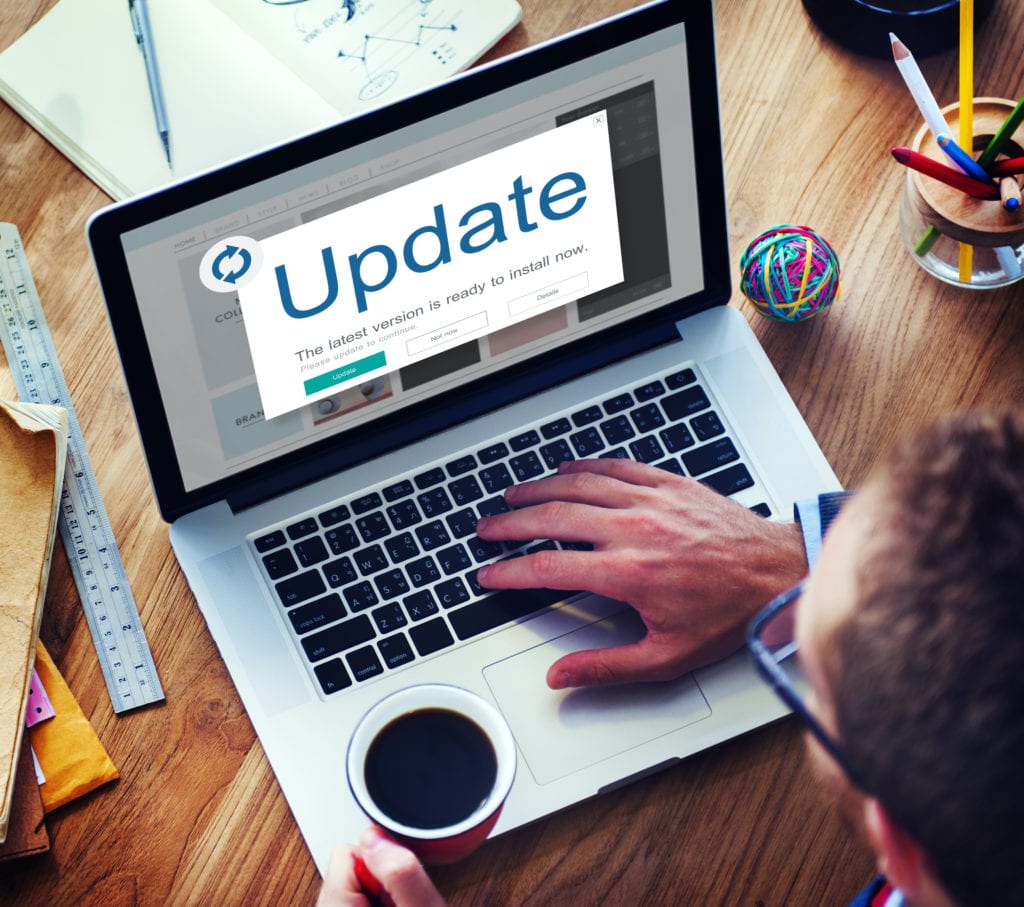
Just do a search on Twitter for “computer updates” and you’ll find that most people don’t have nice things to say about them. Updates get in the way of what you’re doing and can sometimes run into problems if you don’t have an IT professional handling them.
So many people click “ignore” to put the updates off, some for months or even years. Then they wonder why their computer was so easily infected by malware or runs slow as a result.

As inconvenient as those operating system, firmware, and software updates may be, it’s vital that you install them and keep your system up to date. Not doing so can lead to multiple issues that actually slow you down much more than the time it takes to install those updates when they come along.
Another problem that can cause security and performance issues is using outdated software and other PC components. For example, if you happen to still be using Internet Explorer as a browser, you’ve already lost support from Microsoft Teams, Google Workspace, and will be losing support from Microsoft 365 later this year.
As attached as you may be to your older applications, these too need to either be kept updated or replaced and upgraded to a newer version.
What Can Happen When You Put Off Your PC Updates or Use Outdated Software?
The Longer You Wait to Install Updates, the Longer Updating Will Take
It’s not unusual for people to complain about updates taking hours to install once they finally get around to installing them. This is often because there were several updates backed up that needed to be installed in sequence.
For example, if you install Windows updates as they occur, then you only need to install a single update, which can take in the neighborhood of 5 to 30 minutes, depending upon your system.
But if you’ve been clicking ignore on those updates for a year and a half, you’ll have several updates, and each will need to be installed (oldest to newest), which can mean well over an hour or two going through them all.
You Put Yourself at High Risk of a Security Issue
Operating system and software updates contain vital security patches that need to be applied to close vulnerabilities in code that hackers can exploit.
60% of the data breaches in 2019 were directly attributed to unpatched system vulnerabilities. Remember that big Equifax data breach that happened four years ago and ended up costing the company $1.4 billion in damages? The vulnerability that the hackers used to get in had a patch issued for it 3 months earlier, but no one had applied it to the company’s systems.
Both outdated software and an unpatched operating system leave your device at a severe risk of a data breach.
You’re Left in the Past With Less Productivity
If you’re holding onto outdated software, you might feel comfortable using the same tools you’ve used forever, but you’re going to lag behind everyone else.
Updates often contain productivity enhancements that allow people to do more in less time. For example, both Microsoft and Adobe have been adding AI-powered features to their software that improve performance capabilities.
In Photoshop, a dark sky can now be changed to blue at the click of a button, something that used to take hours of detailed masking work.
Microsoft 365 has added several time-saving and helpful features, like Presenter Coach in PowerPoint that gives you tips on your verbal presentation skills and intuitive search that makes it much easier to find things like how to reset margins in seconds.
Your Tech Choices Become Limited Due to Compatibility Problems
One of the components built into updates is the ability to stay compatible with other hardware and software upgrades happening around the technology ecosystem. If you’re running outdated software, you end up limiting your options when it comes to compatibility with cloud tools, other software, and hardware and peripherals that you can use.
Vendors aren’t in the business of looking back, so there always comes a point when backwards compatibility for an older OS or software ends up being dropped altogether.
You Can Get Hit With Costly Data Privacy Compliance Penalties
Many companies are required to adhere to certain data privacy regulations that govern how they secure data collected from customers, vendors, employees, and others.
If you take debit or credit cards, then you have to comply with the Payment Card Industry Data Security Standard (PCI DSS). If you are in the healthcare industry, then you’re required to comply with the Health Insurance Portability and Accessibility Act (HIPAA).
Not keeping all your systems properly updated can increase any penalties that you have related to a security breach, because it’s a common best practice for keeping data secure and one companies are expected to use.
Make Your Updates Trouble-Free!
Carl’s Computer Care can assist your Louisiana business with a plan that keeps all your systems updated, productive, and secure without inconveniencing your employees.
Contact us today to schedule a consultation! Call 225-315-3498 or reach us online.
